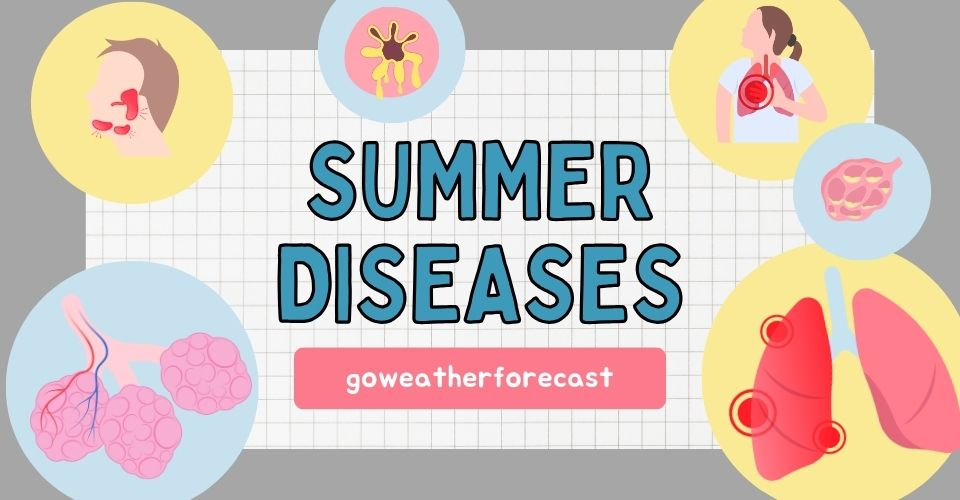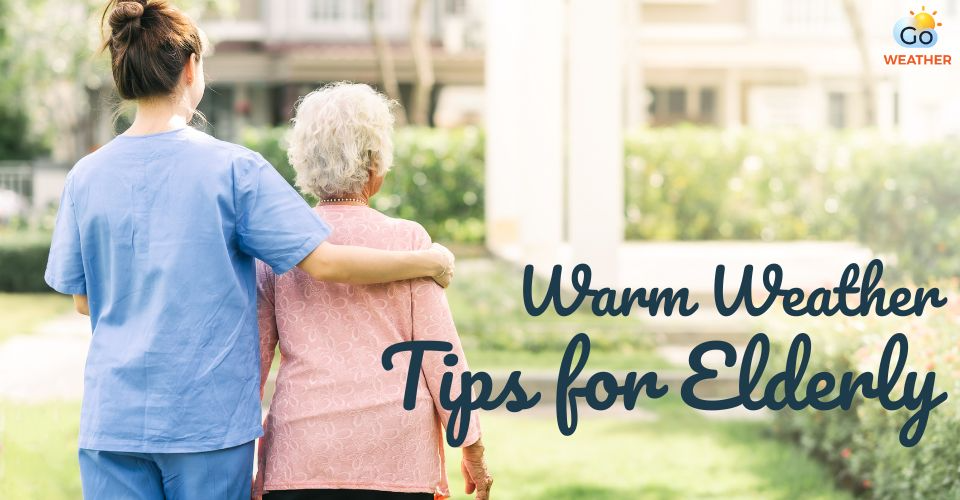12 Best Summer Allergy Tips for Enjoying the Season Without Sneezing
- Reasons for Summer Allergies
- Pollen
- Ragweed
- Mold
- Smog
- Critters
- Dust
- Best Summer Allergy Tips
- Wash your hands
- Replace your mattress
- Nasal lavage
- Eat more fruits and veggies
- Eliminate dairy products
- Try indoor workouts
- Keep your bedroom pollen-free
- Keep indoor air clean
- Change your laundry routine
- Reduce summer stress
- Fight humidity
- Stay hydrated
Winter is not yet to come, but you’re still sniffly and sneezing. Well, the truth is you can get allergies, whatever season. A summer weather allergy occurs when the immune system identifies a substance in the environment that is harmful to the body. They will stimulate the body to release histamine, forming a series of allergic reactions in humans. In this article, we will list down 12 summer allergy tips. Let’s dive in!
.jpg)
How to stop summer allergies?
Reasons for Summer Allergies
Many triggers are to blame for summer allergies, one of the most common summer season diseases. By being aware of these, you can take steps to deal with allergy summer symptoms.
Pollen
Late spring is the time trees are done with their pollen fest. Pollen is one of the most common allergens, and allergic reactions to pollen stem from the immune system.
Instead of identifying pollen as harmless particles when entering the body, the immune system sees it as a foreign object that must be destroyed.
The reason for this misidentification is that the composition of pollen contains substances such as proteins, cellulose, pentose, and dextrin, a phosphor that easily stimulates immune responses.
Allergic pollen types are usually very small, generally less than 0.5mm. Pollen from wind-pollinated plants is more likely to cause allergies than pollen from other flowering plants.
Pollen allergies usually don't cause serious health problems but are frustrating with immune system responses.
.jpg)
What causes common summer allergies?
Ragweed
Ragweed is one of the most prevalent causes of late summer and early fall allergies. This flowering plant thrives throughout the United States.
A solitary plant may produce up to 1 billion pollen grains, which are small, extremely lightweight, and quickly dispersed. Ragweed begins to produce pollen in August and continues until November.
Mold
Outdoor molds can also trigger bad summer allergies. Mold is weather-sensitive, and its concentration may rise depending on the weather.
Certain mold spores spread more easily in dry, windy conditions, while others flourish in high humidity, such as fog or dew.
.jpg)
Mold may cause allergy summer
Smog
Summer air pollution can worsen allergy symptoms. Strong sunlight and calm winds create clouds of ozone around some cities.
That is why one of the best summer allergy tips is to stay inside when the pollen count and smog levels are high.
Critters
Bees, yellow jackets, wasps, hornets, fire ants, and other insects can sting and trigger allergic reactions. If you have a severe allergy, coming into contact with one of them might put your life in danger.
Insect bites commonly cause modest symptoms such as itching and swelling in the affected area. However, they can occasionally cause a severe allergic response.
.jpg)
Insect bites usually cause mild symptoms
Your throat feels as if it is swollen shut, and your tongue may swell. You might experience dizziness, nausea, or shock. This is an emergency, and you need medical attention immediately.
Dust
Dust mites peak during summer when the weather is warm and humid. Their nests include beds, fabric, and carpets. Their residue can get into the air and set off sneezes, wheezes, and runny noses.
.jpg)
What causes summer allergies?
Best Summer Allergy Tips
Wash your hands
You need to wash your hands in whatever season.
This seems to be a simple but effective way to remove germs, prevent respiratory illness, and prevent the spread of germs to others. Make sure to handwash regularly, particularly before and after certain activities.
Replace your mattress
.jpg)
Allergy tips and tricks
Dead skin cells, dust particles, and sweat oils may seep into them when we lie on mattresses. Just imagine the buildup over several years. How terrible!
Hence, one of the best tips for allergy sufferers is to maintain good sleep conditions and replace their mattresses and pillows regularly.
As recommended by sleep experts, pillows should be replaced every six months and mattresses every five to ten years, depending on their type and quality.
Mattress and pillow protectors are also worth the investment, as they provide an additional barrier between our bodies and nasty allergens.
Nasal lavage
Another tip to deal with summertime allergies is nasal lavage using a neti pot or saline solution.
It helps clear the inside of the nose of pollen and other micro-particles before they can enter the bloodstream. To keep your nose hygienic, you should do this twice a day, in the morning and in the evening, right before bedtime.
.jpg)
Nasal lavage
Eat more fruits and veggies
Eat more foods for hot weather, like fruits and vegetables, daily. They are believed to contain high amounts of vitamins C and E, which can ease swelling in the airways.
According to a seven-year study of Spanish children, kids with allergic asthma who ate lots of fruits and veggies saw fewer symptoms than kids who didn’t.
Eliminate dairy products
There should be an improvement in your allergy symptoms if you eliminate dairy products until allergy season is over. Why?
Commercial dairy products contain protein and beta-casein, which can exacerbate allergies. Hence, if you eliminate dairy products until allergy season is over, your allergy symptoms should see an improvement.
Try indoor workouts
.jpg)
Indoor workout are beneficial
When it comes to how to help summer allergies, regular exercise should not be left off the list. It strengthens your immune system and improves blood flow in the body, thus decreasing allergy symptoms such as itchy eyes and runny nose.
A study from Thailand showed that 30-minute running can help allergy sufferers reduce 70% of their sneezing, runny nose, and nasal itching and congestion.
Exercising outdoors in the sunshine sounds tempting, but consider the pollen in the air. It is advisable to work out indoors during allergy season to lower your exposure to that trigger.
Check out additional weather tips for workouts to get the best results!
Keep your bedroom pollen-free
Pollen, dust, pet hair and dander, or body oil are the most common causes of seasonal allergies.
So, try to minimize your exposure to these allergy triggers as much as possible by removing used shocks and clothing before entering the bedroom. Wash your bed linens with hot water to remove any accumulated allergens.
.jpg)
Keep your room clean and pollen-free
You should also vacuum for upholstered furniture, carpet, and fabric curtains at least once weekly. Avoid leaving your windows open at night while you sleep to reduce pollen exposure.
Keep indoor air clean
While an air conditioner may be a godsend during summer months, it can blow dust everywhere, which can cause allergy.
Therefore, one of the best summer allergy tips is to keep your indoor air clean by using a high-efficiency particulate air (HEPA) filter in your bedroom.
Another thing to consider is keeping the windows shut to prevent new allergens from sneaking in. You can also improve indoor air quality with aloe, English ivy, or other air-cleaning houseplants, which breathe in toxins and breathe out fresh oxygen.
Change your laundry routine
.jpg)
Change your laundry routine
Dry laundry outdoors during summer just makes sense, but floating pollen in the air will likely attach itself to your clothing and bedding.
Instead, dry laundry indoors is highly recommended. To reduce the chemical load, try using natural, unscented cleaners or laundry soap. Avoiding products that have noxious odors is also one of the most common summer allergy tips.
A 2009 study by Caress and Anne Steinenmann found that nearly a third of people with asthma also have chemical hypersensitivity, and more than a third reported irritation from scented products.
Reduce summer stress
Stress and tension can also be sources of inflammation. When you’re under stress, your body releases several chemicals, such as histamine, which makes an allergic reaction worse.
The best way to beat them is to meditate or participate in activities. Not only will this help you deal with summer allergies, but it will also help build your immune system.
.jpg)
Reduce summer stress
Fight humidity
If you live in a rainy, humid environment, a dehumidifier is necessary to suck out some of the moisture and make it less of a breeding ground for mold, dust mites, and bacteria.
Too-dry conditions can be equally problematic, resulting in sore throats, itchy skin, and itchy eyes and even increasing the risk of sinus infections.
In these conditions, using a cool mist or ultrasonic humidifier to achieve the right balance is one of the best tips for allergy season.
Stay hydrated
Staying hydrated helps flush out pollen and other foreign substances circulating in our bodies. The Institute of Medicine (IOM) recommends men drink at least 104 ounces of water daily and women consume at least 72 ounces.
It is also among the best ways to deal with skin diseases in summer season.
.jpg)
Staying hydrated is one of the best summer allergy tips
Conclusion
A weather allergy is a common illness that anyone can get. The disease causes unpleasant, itchy symptoms on the skin that adversely affect life. Its complications, as well as superinfection, are hazardous. Luckily, these best summer allergy tips will help you keep allergies under control. If the symptoms of the disease worsen, you must immediately see your doctor to have the most effective way to treat the allergy.










0 Comments
Leave a Comment
Your email address will not be published. Required fields are marked *